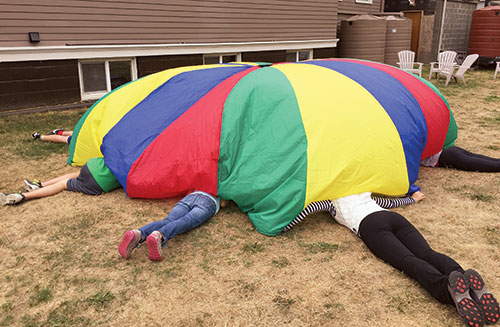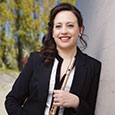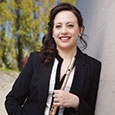As careers in music continue to evolve, more and more flutists start a private studio, either as a supplemental or primary source of income. A portfolio career is the path most musicians pursue and a private studio is usually a key part of that.
A portfolio career is made up of many jobs that add up to the equivalent of one full-time income. In the past, musicians might have had one gig that supplied a full-time salary. As academic jobs in music transition to adjunct positions and orchestral salaries become lower and fewer, flutists are required to get resourceful and cobble together several part-time jobs. A private studio provides a steady income while allowing a flexible schedule for performing and freelancing.
Before You Start
The first step when considering building a private studio is to determine whether you like kids. It may seem obvious, but many people teaching private lessons do not like interacting with kids and end up being miserable. If you have never spent much time with students before, now is the time. Offer to teach sectionals with a local school band program or give a presentation on extended techniques. Test the waters. Notice whether you are happy and having fun helping students. If you cannot see yourself doing this every day, you should find another income stream for your portfolio career.
You should also consider how you want to affect students’ lives through music. Everyone wants their students to have great tone, technique, and sightreading skills, but think about what else you want to offer them. What do you see as valuable in flute lessons that goes beyond the music? Having clear goals and objectives will help you determine the best ways to achieve them.
Next, determine what type of teacher you want to be and what lessons with you will look like. Frequently, private teachers rely on the same books, methods, and even lesson structures that their own teachers used. Instead of coming up with their own voice and ways of teaching, many simply fall back on the old ways without even considering other options. Just because a certain book or teaching method worked for you does not mean it will work for all of your new students. Explore new ways of conveying information through games, apps, and movement. A combination of resources from the past, present, and your own innovations can elevate the level of instruction in every lesson.
Consider elements that you can bring into lessons to reflect your goals in teaching music. How can you teach teamwork, leadership, discipline, and manners through learning Mozart? If you have never considered including these topics in your lessons, you are not utilizing the full power of music education.
A Teaching Philosophy
All of these things come together in the biggest element to consider when starting a studio – your teaching philosophy. Why do you want to teach? The most passionate teachers have a solid teaching philosophy. They know why they teach, how they teach, who they teach, what they teach, and what they bring to their community by teaching. To formulate a teaching philosophy, you might start by answering these questions:
1. Why are you a musician?
2. Why do you want to teach music?
3. How are you going to put your philosophy into action? What goals do you have for lessons? What do you want students to get out of their music education?
4. What will make your teaching special? What will you do to bring your philosophy to every lesson?
Leonard Bernstein is a great example of an effective teacher with a solid teaching philosophy. He truly loved teaching music. When his Young People’s Concerts aired on television, his excitement and passion were contagious. He inspired and educated millions of people. His explanations of musical structures and harmonies were never dull. It was like he was letting you in on a secret or a suspenseful story. He saw music education as a way to reach people deeply and get them as excited about music as he was. He taught music because he saw it as a way to link people through their souls. His conducting skills were great, but it was his passion to reach people and bring them together through music education that made him so dynamic.
Recruiting
Before you can consider recruiting efforts, your teaching philosophy should be in place. While it will evolve over time, if you do not know why or how you teach, how can you expect people to flock to you to take lessons? To successfully recruit, you have to truly know why you want to do it. Your philosophy should reflect a balance of flute goals and non-musical aspirations. Most students and families will not know much about the flute, but they do know about leadership, community, manners, and good citizenship.
Utilizing your clear teaching philosophy, begin to develop materials for your studio that might include a website, email templates to band directors and other leads, and an online presence or social media page.
Website Considerations
When building a website, it is extremely important to remember that budding flutists and their parents do not have years of music education, so keep in mind that they most likely do not know what repertoire, finger technique, Alexander Technique, and vibrato mean. Be sure your content is easy to navigate and comprehensible.
Your website should emphasize your teaching philosophy throughout. Gather photos and videos of yourself with students (with permission) to demonstrate your teaching philosophy. Everything on the website should reflect your philosophy. This shows potential students you are serious about teaching and provides them with a clear understanding of what to expect in lessons with you.
If your website is only about you and your accomplishments, you can expect very few email inquiries. While it is important to have a great biography, it is more important to show what lessons with you are like and make the decision of which teacher to choose an easy one. When you demonstrate a solid teaching philosophy and thoroughly explain your lesson offerings, students and parents are more likely to inquire about lessons with you. When shopping for flute teachers, most parents and kids look for pictures of lessons with other students. They want to see if they can envision themselves fitting in. They are not looking for a teacher’s biography full of accolades, lists of orchestras they have played with, or dozens of professional headshots. These items are important to include on an artist’s website, but consider showcasing yourself working with students on your lesson and teaching pages.
.jpg)
Creative music games such as the “Scale Pail”game help keep students interested.
Owning a Business
Having a private studio means running your own business. This scares many musicians because they feel they do not feel qualified as business people. In truth, many of the same skills developed in your years of musical training will stand you in good stead. Musicians work in a practice room to deliver a product in a satisfactory way for lessons and performances. The same is true for private teaching. The preparation that goes into building a private studio is just as important as teaching the lessons which are like a performance. The organization and planning skills developed over a lifetime of music training also transfer to the requirements of running a business. These include keeping up with email correspondence, being on time for appointments, organizing the schedule, planning when recitals take place (making sure they do not interfere with school holidays or youth orchestra concerts), being prepared with handouts or new music for each lesson, communicating with students and parents, and looking ahead to plan future steps. Even if you do not have an MBA, building a business is entirely achievable as a musician.
At the heart of building a successful private studio is knowing why you want to have this as part of your career and how you can truly make a difference. You have to take the time to figure out why you want to teach and what you hope to impart to your students. Having a private studio is so much more than creating a steady paycheck. To be a truly effective music educator, understand your special skills and figure out how you can light a passion for music in the next generation.

Consider starting a summer camp for your studio and include fun bonding activities.






